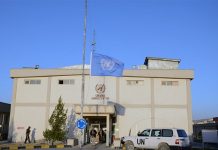In March, Pakistan’s Commission on Missing Persons recorded a total of 141 new cases of enforced disappearances, as detailed in a monthly progress report submitted to the supreme court.
The report states that since its inception, the commission has documented a total of 9,534 cases of forcibly disappeared persons up to March 31st. Of these, 7,105 cases were resolved by the end of February this year, the report claimed.
In March, the commission said it addressed an additional 59 cases, raising the total number of resolved cases to 7,164. A breakdown of the 59 resolved cases in March, as mentioned in the report, reveals that 52 individuals were located. Seven cases were dismissed because the alleged missing persons were determined not to have been forcibly disappeared. Among the 52 located individuals, 47 returned to their homes, three were found deceased, and two were discovered in jail.
As per the report, 2,370 cases of enforced disappearances are currently under review by the commission.
It is pertinent to mention that Balochistan in particular, continues to witness enforced disappearances on a daily basis despite the commission’s efforts. According to human rights organizations working against enforced disappearances, some families in Balochistan choose not to register their cases with the commission.
These organizations emphasize that the number of reported cases remains much higher than the commission says. These rights groups and families of the victims hold Pakistani law enforcement agencies and secret services responsible for enforced disappearances in the region.
Reportedly, the families of missing Baloch individuals express dissatisfaction with the commission’s approach after submitting their cases, deeming it inappropriate and irresponsible. They also claim that the commission’s reports do not accurately reflect the situation on the ground.






























